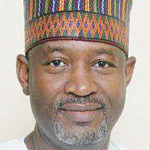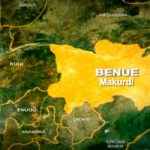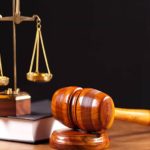Strong condemnation trail NGO Regulatory Bill, CSOs rebuke lawmakers
 Civil Society Organisations (CSOs) and Non-Governmental Organisations (NGOs) on Wednesday, condemned the Bill for an Act to provide for the establishment of the Non- Governmental Organisation Regulatory Commission.
Civil Society Organisations (CSOs) and Non-Governmental Organisations (NGOs) on Wednesday, condemned the Bill for an Act to provide for the establishment of the Non- Governmental Organisation Regulatory Commission.
The NGOs and CSOs unanimously condemned the bill during the public hearing at the House of Representatives organised by the House Committee on Civil Society and Development Partners in Abuja.
The bill which seeks the supervision, co-ordination and monitoring of NGOs and CSOs was strongly also rejected by other stakeholders.
The stakeholders said the bill threatened freedom of speech and association, adding that the commission would be a duplication of already existing agency.
The Convener of the Situation Room, a coalition of CSOs, Mr Clement Nwankwo, said that there were enough laws guiding operations of civil societies in the country and did not need the commission.
He said that many Nigerians held very strong views on the bill, its related consequences and risks.
According to him, a lot of civil society organisations’ activists were killed under the military dictatorship in the country but that it did not deter the advocacy of CSOs.
“CSOs are particularly worried about the bill because of the possible negative consequences,’’ he said.
The convener said the fears of the sponsor of the bill that CSOs were being used to fund crisis should have been addressed.
“In that context, Mr Chairman, I congratulate this committee for providing this platform for the CSOs to speak.
“The high number of memos and input made by the public into this hearing show the enthusiasm, concern and anxiety that this bill has raised.
“This House is the house of the people and I am sure that they will listen to what the people are saying which is a resounding no to the NGOs regulation bill,’’ he said.
Also speaking, the Catholic Bishop of Sokoto Diocese, Bishop Matthew Kukah, said at the return of democracy in 1998, he wrote a book in which he concluded that without civil society, there is no democracy.
The bishop said that said without civil society, Nigeria’s democracy would be in grave danger.
He stressed the need for a convergence of ideas between the political class and the general public.
Kukah said, “for a very long time, we have had a country where suspicions between the governed and those governing have persisted.
He said it was to bridge the gap that the Kukah Centre was established, saying that whatever could be done to bridge the gap must be encouraged.
“There is a general assumption among the people that anybody holding a public office is a thief.
‘’The public office holders have a feeling of disregard for the masses who do not respect them enough.
“I stand with civil societies very firmly and I believe we have enough laws in this country.
“We are really not in short of laws covering every aspect of our national lives.
“I think the bill does not appreciate the amount of efforts that had been made to put laws in place.’’
Kukah expressed the hope that the National Assembly would take very seriously the sentiments and the arguments put forward by the various platforms that responded to the bill.
He urged that attention should be focused more on how to generate and sustain energy of Nigerians and CSOs as opposed to creating a situation which deepened the lines of suspicion.
Earlier, the Speaker of the House of Representatives, Mr Yakubu Dogara, said the essence of public hearing was to get public views on the process of law making.
Represented by the Rep. Bagangida Ibrahin, Chairman House Committee on Finance, Dogara said it the event was also a platform for promoting public participation in governance.
He said the move was in line with the constitution of the Federal Republic of Nigeria.
The speaker explained that NGOs and CSOs had been involved in poverty reduction, human rights, environmental and domestic violence, anti-corruption, HIV and AIDS and other socio-political activity.
According to him, generally, NGOs and CSOs are independent organisations to a large extent, adding that their work is voluntary and non-profit making.
Dogara, who said the bill to regulate the NGOs had generated a lot of public interest, urged participants to reflect the interests in their contributions.
“I assure you that the process of lawmaking will always be subjected to public scrutiny and this comes after the first and second reading of the bill,’’ he said.
The Chairman, House Committee on Civil Society and Development, Rep. Perterson Akpatason (Edo-APC), urged stakeholders to oblige the committee their expert views to guide it in making recommendations for the Assembly. (NAN)








